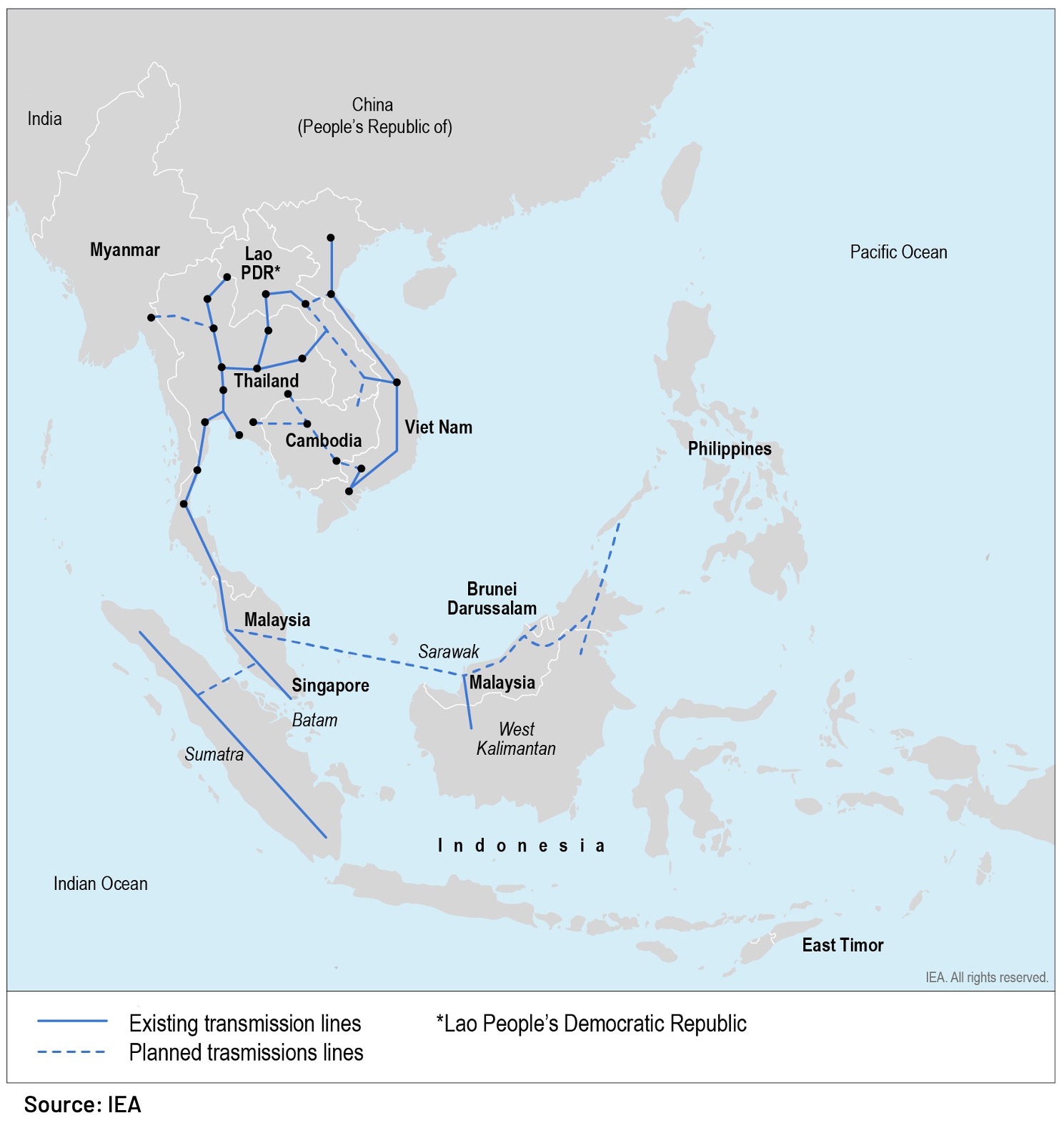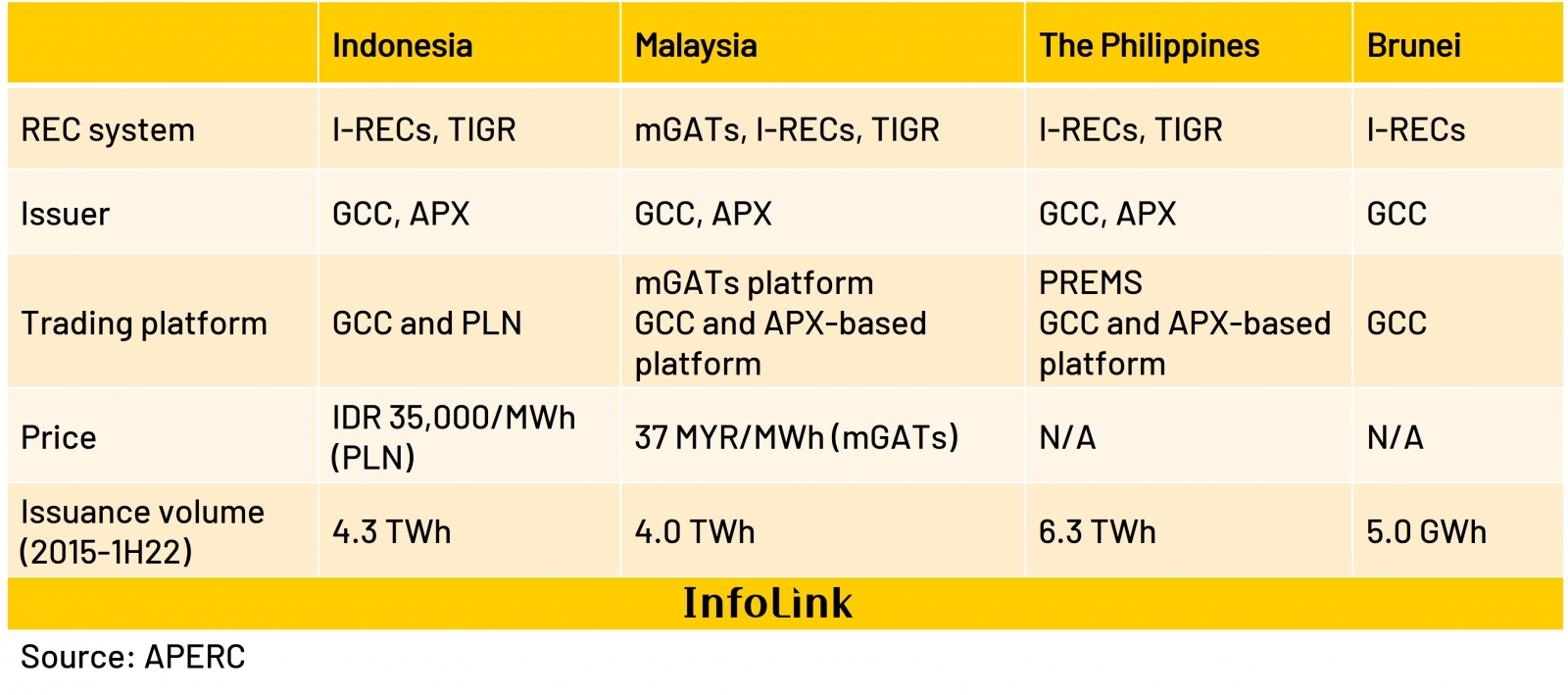ASEAN countries, with abundant renewable energy sources, have long been hoping to draw on the EU's Guarantees of Origins (GoOs) to develop a regional REC system that can capitalize on the strengths of each member country. However, the promotion of this idea has been hindered by the lack of a clear consensus on the development of new energy sources and the varying degree of motivation of the respective governments.
It was until recently did the ASEAN Centre for Energy (ACE) initiate the Development of Conceptual Framework of Renewable Energy Certificate System (RECAP) in collaboration with the BIMP-EAGA-ROK Cooperation Fund (BKCF). The two-year cross-border project aims to identify the market potential of renewable energy certificatation and develop a conceptual framework for the regional REC system in Brunei, Indonesia, Malaysia, and the Philippines (BIMP). State-owned power utilities, energy agencies, and private companies committed to the use of renewable energy in the targeted countries are expected to benefit from the project.
Regional challenges
Establishing a regional REC system must adhere to specific conditions, including compatibility with unified market standards across countries and possessing international credibility. For instance, the recent technical criteria set by RE100 necessitates a grid connection between the countries issuing GoOs and the regions where the electricity is used. Consequently, ASEAN's regional REC system needs to follow similar guidelines to demonstrate its validity for RE100. Despite having a road map for the ASEAN regional power grid, the member states have yet to reach a consensus, rendering the regional REC ineligible for RE100 verification for business use, even with successful implementation.

Figure 1. ASEAN cross-border power grid
Step out of existing market framework
While the details of the RECAP have yet to fully disclosed, the incentives for Independent Power Producers (IPPs) in the targeted countries to pivot to the new system are of significant concern. Table 1 below lists the current renewable energy systems in the four targeted countries. Malaysia, for instance, has introduced mGATs as a national REC, with a pilot program completed in 2022 and follow-up planning underway. Meanwhile, the state-owned utilities in Indonesia and the Philippines have both partnered with international REC standards. In Indonesia, companies can purchase Tradable Instruments for Global Renewable Energy (TIGR) issued by US-based APX through the state utility, while the Philippines has collaborated with I-REC to launch the Philippine Renewable Energy Market System (PREMS), offering a similar approach to purchasing RECs.
Overall, among the four countries, except for Brunei, where market development is obscure, the other countries offer more than two options for RECs, with national systems involved. Whether the ASEAN regional REC scheme can completely replace the current models and what incentives should be provided to facilitate a smooth transition will be the focal points for the region's renewable energy market in the near future.
Table 1. Existing REC systems in the four targeted countries

What does regional RECs mean to businesses?
The introduction of ASEAN's regional REC system would provide companies with more procurement options in countries with underdeveloped market mechanisms, while enabling them to develop plans in accordance with renewable energy target in nations without relevant mechanisms. Additionally, the system could integrate renewable energy resources across multiple countries, thus reducing the price of RECs. Assuming that stand-alone RECs are phased out of the international market in the future, regional Power Purchase Agreements (PPAs) through regional RECs would present a more effective solution than a single-country model. Overall, the regional REC system would address deficiencies in market mechanisms, assist ASEAN companies in leveraging renewables, and optimize resource allocation within the region.
ACE and BKCF's RECAP project has laid the groundwork for a cross-border REC system that is expected to facilitate regional integration of renewable energy markets, despite challenges such as applicability and international credibility. However, the mechanism transition for IPPs, incentives to replace the current market model, and the impact of regional RECs on businesses remain to be discussed. Despite uncertainties ahead, the project is an important step for ASEAN in the sustainable energy sector and is expected to foster the region's future energy transition and cooperation.